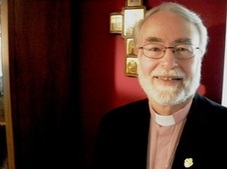 Day 365 Reflection for January 6th
Day 365
Malachi 4, Psalm 149-150, Luke 9
A Reflection on Luke 9: “Then he sent them out to preach the Kingdom of God and to heal the sick…” (Lk.9:2)
Day 365! Congratulations! YOU MADE IT! Every day for the past year you have faithfully mined the riches of God and all of His creation as found in the Bible, as well as through other devotional materials. Undoubtedly, there were days when you wondered if you could keep the discipline but here you are…finished…or should I say finished this phase of what you and God are doing together. What an achievement that I pray has brought you deeper into the blessings of being a part of His Kingdom.
Luke 9 is such a fitting chapter to conclude this phase of our adventure in the Kingdom, “Then he sent them out…” (Lk 9:2). The primary purpose of our daily readings in the Bible has been to equip us with the mind of Christ with the primary imperative that we GO! We see the same imperative in Matthew 28:18-20, somewhat of a duplicate of Luke 9, in which Jesus is sending out his disciples to establish the Kingdom. Each, however, has certain twists that give us insights in to some of the nuances of discipleship.
In Matthew, we are given the imperative to “Go, then, to all people everywhere and make them my disciples.” (Mt. 28:18) Jesus’ final command in Matthew is for us to take the Good News to all people everywhere rather than just to the regions that the 12 disciples were accustomed to. Note that he gives very few directives as to how this is to be accomplished. We are very familiar with Jesus’ call for us to GO as recorded in Matthew but Luke 9 along with Luke 10, the sending out of the 72, have a lot to teach us about the nature of the call that must be within us in order to have the seed of the Gospel bloom in the present and next generation.
Dwight J. Zscheile in his recent publication, People of the Way, (p. 78-81) takes an insightful look at the details and resulting implications of Jesus’ call for the 12 to “preach the Kingdom and heal the sick.” Remember, this is their very first mission and Jesus is very specific as to how they are to go about it. Here are Jesus’ instructions: “Take nothing with you for the trip: no walking stick, no beggar’s bag, no food, no money, not even an extra shirt. Wherever you are welcomed, stay in the same house until you leave that town…” (Lk. 9:3-4) I don’t know how this hits you but Jesus is really tough, coming across as the Vince Lombardi of the first Century. Oh, we learn later that they did go out two by two so at least you have a companion on this terrifying adventure. Jesus is a hard taskmaster to say the least, but, as is generally true, the harder way is often the easiest and the easiest is often the hardest.
Just imagine what that experience was like or better yet, stop for a moment and anticipate you doing likewise, NOW! TAKE NOTHING…no car, no credit card, no cell phone, no snacks, no extra clothes. Just what you have on your back! Go! GO NOW! Ah…hey Bryan…are you crazy!!!
Well, before you say no to the meditation, walk with me in your heart and hear what the Spirit says. If the two of us left right now from Pembroke Pines where I live…walking, we would probably walk east toward Hollywood and perhaps the Beach. We would look for people who had a spark of hospitality and compassion. Part of our motivation is the Kingdom and the other part is our own survival. Of course, hospitality in Jesus’ time was much more popular and regularly practiced so perhaps they had some advantage over us. That said, don’t forget that not only do we have a life-giving message to give away but we also have to deal with hunger and the possibility of living on the street. Well, at least there are two of us to enjoy the adventure.
After a few hours of this new adventure, the thrill of beginnings has us wondering what in the world Jesus had in mind or was he out of his mind? What is he trying to teach us that is so important that it is the foundation of our first mission effort? As with most valuable lessons, the ultimate lesson to be learned is not readily apparent.
We are enthusiastic and know in our hearts that we have something to give but how do we approach someone, anyone, with this life-giving message. Fatigue and hunger and a tinge of fear become a part of the adventure. We begin to engage people…some respond…some do not. Many see us as just homeless beggars except that we don’t beg. We could do a miracle to get attention but that doesn’t seem to be a valid approach. Too much power and besides, is this the way the Gospel will be shared?
With NOTHING, we have only ourselves and the memory that we have been touched in our mission tool-box. So…we touch! Yes, TOUCH. We don’t stand on the street corner and preach…we engage people…we touch…one to one! Dwight J. Zscheile reminds us how small and intimate the first Century homes were; one room, small houses where livestock and family often gathered at night. When you are on a mission for Christ, you have to be intimate, close…close enough to touch! In this environment, the Kingdom is preached and the sick are healed.
And so, the lesson is learned. Our enthusiasm to share the Kingdom and heal the sick is tempered and thereby informed by our hunger, thirst, and need for nightly lodging. And so the lesson from our mission is that to accomplish what Jesus has called us to do, we MUST engage others…we’ve got to TOUCH!
One of the true joys I have experienced the past 12 years in working with the church leaders of the diocese has brought this blessing home in so many ways. When a church experiences success in growing the Kingdom, it has always been because the church leaders have seen their mission beyond themselves. They never limited themselves by the lack or abundance of resources…that simply was not an issue. Real leaders don’t ask “why” but “why not.” They just have a passion to share the Kingdom and see people healed in the process; they draw close to people who are hurting and in need of a friend. They Touch!
What better way to end one year’s adventure and begin another…TOUCH SOMEONE!
Bryan A. Hobbs
[email protected]
 Malachi 3 We do not know anything at all about the prophet who is the author of this final book in the Old Testament. We do not even know if his name was Malachi or if this was an appellation ascribed to him because of his role as God’s messenger. Malach is a Hebrew word that means “messenger.” [Malachi means “my messenger”; malachenu means “our messenger.”] When the Old Testament was later translated into Latin the Hebrew word malach was translated into its direct Latin equivalent, angelus. However, when the Old Testament was later translated into English (a language that didn’t exist in the days of the Roman Empire), for some unknown reason the Hebrew malach was sometimes translated into its direct English equivalent, messenger, and at other times is transliterated from the Latin angelus into angel. This is unfortunate for two reasons: (1) it has led to all kinds of silly notions about “angels” among Christians; and (2) it has likely prevented many of us from noticing when a messenger from God has been sent to us. If we think of “angels” as winged creatures with human faces wearing New Testament era clothing, we would most likely conclude that never has an “angel” appeared to us. The truth is, we don’t know whom God may choose to act as God’s messenger to us at any given time in our lives. We need to pay attention!
Chapter 3 begins with the words: “Behold, I send my messenger to prepare the way before me, and the Lord whom you seek will suddenly appear in his temple.” Christians have interpreted this verse as referring to John the Baptist, a theme that is fresh on our minds as John the Baptist is the focus of the middle two Sundays of Advent. The book ends with a commentary on these words: “Behold, I will send you Elijah the prophet before the great and terrible day of the LORD comes.” That Jesus himself interpreted this as referring to John the Baptist, see Matthew 11:14 and 17:10-13.
It is unreasonable and unjustified for Christians to take Jewish Scriptures and tell the Jews that they don’t know what they mean but we do. On the other hand, we must recognize that there are many layers of meaning in much of the Scriptures. While it is not right to take a particular Christian interpretation of an Old Testament passage and insist that it is the only valid interpretation, it is inevitable that we should take passages such as these from Malachi and apply them to John the Baptist, or take the Servant Songs of Isaiah and apply them to Jesus. Hence it is fitting that, from a strictly Christian standpoint, the Old Testament ends with a (veiled) reference to the precursor to the Messiah, the subject of the New Testament.
Luke 8 There are two parables, three healings, and other events related in this chapter. Any one of them could be fodder for a whole commentary or even a sermon. However, since we have already read through the Gospel of Luke last spring, and someone else has already written a commentary on it, my remarks here will be very brief.
It is worth pointing out the prominence of women (and a girl) in this chapter. Several women who support Jesus’ ministry financially are mentioned at the beginning, a young girl who has died is raised, and a woman suffering from a long-term ailment is healed. Such attention given to women is typical of Jesus, but was not typical of the culture of his time.
The parable of the sower is one worth pondering as we reach the end of this year-long pilgrimage of reading through the Bible. How do we react to the word of God? What type of soil do we represent? (Let’s not presume too much here!)
I know from comments from some of the folks in my congregation that some struggle with much of what is written in the Bible and is passed off as “God’s word.” The wholesale slaughter of men, women, and children when the children of Israel moved into Canaan comes to mind. This reminds me of the Gospel reading from Christmas, when the shepherds rush to the stable and tell Mary and Joseph the message from the “angel” (read “messenger”), that this helpless newborn is Savior, Messiah, and Lord. They were, understandably, “amazed.” Who wouldn’t be? It is safe to assume that they didn’t know what to make of it all. “But Mary treasured all these words and pondered them in her heart.” Now that we have read through the Bible in its entirety, we have lots to ponder. Whether going forward we make daily reading of the Bible a discipline in our lives or not, we will continue to engage the Bible at a minimum through our Sunday readings. Whether we are firm believers or skeptics who don’t know what to make of it all, let us use Mary as a role model and continue to ponder these things in our hearts. But as we ponder let us also, like Mary, “treasure all these words!”
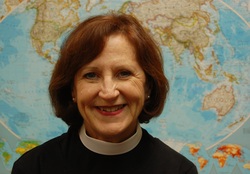 Bible Reflection for Day 361
Malachi 1
I think we have all been part of a conversation that starts out the way
this last book of the Old Testament begins. Cantankerous, presumptuous, making assumptions - one side assuming the motives of the other? Playing favorites? Making threats?
Whose voice is this?
Malachi sets up the conversation between the Lord of Hosts and the people
of this post-exile society that the prophet assumes to be lax in their
religious and social behavior.
With this dialectic style of writing, Malachi is setting out the issue:
the people of Israel are questioning God's love for them.
Malachi sets up a conversation between God and the people... but is God's
voice really that demanding? Is God really playing favorites and choosing Esau
over Jacob or is that what the people think God is doing?
Is that God's voice telling the people to give proper sacrifices and
offerings under threat of curse? Or is that Malachi trying his hardest to
convince the people to offer their best to God?
One thing I think we can all agree with - the conversations are not always
what they seem. And in the year of Bible Challenge we have all been reminded
to listen carefully to the words and dig into the context. Wait for the rest
of the argument to unfold...
So, stay tuned. Watch and wait for what God unfolds in this new
year...
Kathleen Gannon
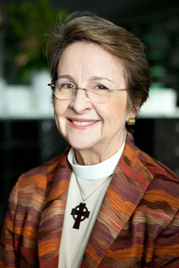 The Bible Challenge, Day 360: Zechariah 14, Psalm 143 and Luke 5
The prophet Zechariah concludes his proclamation by declaring that God is going to release the Israelites from their captivity and reestablish Jerusalem as the Holy City, the center of God’s kingdom. Violence and disease will devastate the enemies of God’s people, and yet God welcomes all the nations to celebrate together the fall Festival of Booths, an observance that remembers God’s faithful presence with the Israelites as they wandered for forty years in the wilderness. It is an odd mixture of threats and invitation. Perhaps we are glimpsing a transition in theological thinking that begins to wonder about the possibility of God’s concern for all the people in the world.
Psalm 143 expresses well the sentiment of one who has been experiencing hardship because of persecutors. The psalmist longs for some reassurance of God’s compassion as morning dawns and concludes by begging God to “destroy my enemies and bring all my foes to naught” – reminding God of the speaker’s deserving status. Surely Zechariah’s audience has felt the sentiments expressed in these verses.
But from the beginning of his ministry, Jesus does not treat people in categories, and certainly not in categories of “us” and “them” – the beloved and the rejected. In Luke’s fifth chapter, Jesus shares “God’s word” – likely a mixture of encouragement and wisdom – to fishermen and country folk. The country folk have come to see and hear for themselves the wonderworker who has been teaching in synagogues and healing the sick. They are eager listeners. The fishermen are here by the grace of God – for their own benefit and for the welfare of the Gospel they will be entrusted to proclaim in just three short years. The fishermen are transformed by the encounter and walk away from the security of their day-to-day activities to follow this Master. These fishers-of-folk-in-training immediately witness Jesus’ loving compassion. He responds to a leper’s request for healing and sends the restored man off to show his clean skin to the priest, who can pronounce him now welcome back into human company. Jesus declares a paralyzed man forgiven and sends him back home carrying his cot with him. Jesus invites the tax collector Levi to join his band of followers, and Levi throws a party, where he gathers his disreputable friends around the dinner table with Jesus.
Jesus’ acts of mercy are a joy to many, but the religious leaders feel confused, and likely threatened as well. They have been the keepers of the Torah – the interpreters of God’s law and the judge and jury of human faithfulness and human frailty. They jealously guard this responsibility and keep pointing out where Jesus is not adhering to the letter of the Law. Jesus says he is here to usher in the Kingdom of God, something unimagined previously. The old rules blind us to the fullness of God’s care and concern for all. The divine vision Jesus has come to disclose cannot be contained in the old codes.
The new can be very unsettling. The old structures keep the chaos at bay. I am surprised by the questions people ask me about pious practice. For example, last week someone asked “I am not supposed to take communion if I ate breakfast before church, am I?” I appreciate the desire to live a holy life, but we can get caught up in this kind of hair-splitting and miss the big picture: the forgiving, the working for justice and the loving of neighbor. Where is Jesus inviting you to see with a graceful heart?
Jennie Lou Reid+
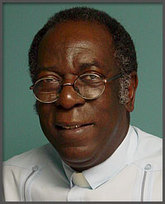 Zechariah 13
Psalm 142
Luke 4
The 13th chapter of Zechariah is justly titled the end of Falsehood.
As we come to the end of a year waiting for the new, we are tempted to think that after all it is and still will be the same thing all over – wars between nations, greed, falsehood in the political arena, corruption in the church, etc. It is the kind of reflection that has led many to subscribe to the atheist existentialist ideology one claiming that our existence is absurd, there is no good or evil.
In Psalm 142, King David sees hopeless around him yet prays with assurance that the Lord will deliver him ultimately because human existence is not meaningless. God has a purpose for all of us and falsehood and evil will not reign forever.
We have the hope that “change is coming: as we hear again the words of our Lord as he quotes the Prophet Isaiah.
“The spirit of the Lord is upon me, because he has anointed me to bring glad tidings to the poor He has sent me to proclaim liberty to captive and recovery of sight to the blind to let the oppressed go free and to proclaim a year acceptable to the Lord.” Luke 4:18-19. May we embrace this message and go proclaim the good news, the gospel. Today more than ever throughout the world there is a resurgence of injustice, threat of religious wars, deepening conflicts between Christians and Muslims in parts of Africa and the Middle East. In spite of efforts being made to accept and celebrate our differences, LGBT are being sent to jail because of their lifestyle in places like Uganda. Fundamentalism of various shades is dividing the Christian family and social justice is rejected by many as a Marxist ideology.
Again, this gospel has to be preached more and more. “Glad tidings must be brought to the poor and the oppressed must go free.”
The Venerable J. Fritz Bazin, D. Min.
Archdeacon for Immigration and Social Justice Ministries
Diocese of Southeast Florida
 Bible Challenge
Day 358
Zechariah 12, Psalm 146 and Luke 3
Our year-long Bible Challenge is nearly complete and I want to thank all our bloggers and readers for your companionship in this sacred journey. I pray you have found it encouraging and renewing.
Zechariah chapter 12 begins a section of “oracles” that differ from the preceding visions. In chapter 12 we read of a prediction of God’s judgment against “all the nations” that have oppressed Jerusalem and the people of God. Images of a “cup of reeling” and a “flaming torch” serve as vivid portraits of a fierce and destructive day of divine reckoning that precedes the restoration of the reign of the “House of David”. But while I was struggling to cope with the ferocity of these images, suddenly verse 10 includes the image of a great mourning for the “one whom they have pierced”-- a passage that brings to mind the crucifixion and is part of our Good Friday liturgy. The cross of Christ reveals eternally God’s judgment and compassion. In Jesus, we see God’s plans and purposes take flesh. Like a shining shaft of light, this image pierces through Zechariah’s prophesy and connects us to God’s act of ultimate restoration in the coming of Jesus, the messiah.
Luke chapter 3 begins the story of Jesus public ministry and the in-breaking of God’s reign with the baptism of Jesus. All four gospels tell the story of Jesus by first telling the story of John the Baptism and his call to repentance through baptism and a renewed life of justice and mercy. In Luke’s gospel, Jesus’ baptism takes place “off stage” and while Jesus is praying, he receives the stirring affirmation from Abba: “You are my Son, the Beloved; with you I am well pleased”. Luke’s gospel repeatedly emphasizes the role of prayer in providing guidance and direction for our Lord’s ministry, and by extension, our ministries.
This chapter also ends with a genealogy, very different from Matthew’s, but before you are tempted to skip lightly over this section, note that the genealogy ends not with Abraham, as Matthew’s does, but with Adam. Luke, the gentile physician and convert to Christianity, want us to remember that Jesus comes to save all humanity. You and I are included in this story.
Psalm 146 begins the final section of Psalter which contains a series of songs of praise to God. For this, my last blog entry, I join the psalmist in praising God for our year of immersing ourselves in the Bible:
Praise the Lord!
Praise the Lord, O my soul!
I will praise the Lord as long as I live;
I will sing praises toGod all my life long...
The Lord will reign forever,
your God, O Zion for all generations,
Praise the Lord!
Andrew+
 Devotion Luke 2
A number of years ago, my student evangelists and I went into the country side to have an evangelistic mission to start a new church. The host of the mission made the arrangements for us to stay in a two story brick/mud house. The host family stayed and lived upstairs. We had all of our meals upstairs. But when it came time to sleep, we slept downstairs where the rice harvest was stored and where the animals stayed at night for security. We slept on the first floor which was a stable of some sorts. It was common practice in the highlands for visitors to sleep downstairs among the animals.
I’m amazed time and time again about God using the common place to reveal truth. This is clearly demonstrated in the birth of Jesus in Bethlehem. Luke writes as if it was as common as any other child being born “the time came for her to deliver her child. And she gave birth to her firstborn son and wrapped him in bands of cloth, and laid him in a manger, because there was no place for them in the inn” (v6-7). Joseph and Mary stayed in a common place for visitors among the animals. She did what every other mother would do after giving birth, wraps her child in cloth to keep him warm and laid him in a manger, a place for the child to sleep and rest. The manger would be the most suitable and common place to put and protect her child.
I’m also amazed that God revealed truth to the shepherds, the ordinary people going about their common duties. They were watching their sheep at night when an Angel spoke to them and said “I am bringing you good news of great joy for all the people: to you is born this day in the city of David a Savior, who is the Messiah, the Lord” (v11-12). God uses common duties to speak to ordinary people to reveal truth.
Many times people believe they need to prepare the situation, the event, or the timing for God to intervene and reveal his will but in the gospels we see time and time again, God intervenes in common place, common space and common duties.
So during this Christmas season look for the Holy Spirit to reveal’s God will in your common place, common space and common duties.
+Todd
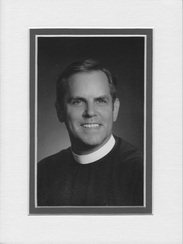 Zechariah 7-8, Psalm 138, Mark 16
The Lord will fulfill his purpose for me;
thy steadfast love, O Lord, endures forever.
Do not forsake the work of thy hands.
(Psalm 138:8)
Have you ever faced a situation so bad that you instinctively knew that the only consequences for your action would be the anger of the one you offended? Perhaps it is something we did as a child against our parent’s better advice, or as a youth disrespectful of authority, or as an adult in defiance of a spouse or boss. So it was with the chosen people of God. Israel’s misery is addressed by the prophet Zechariah after her destruction and captivity. He delivers the message of God’s wrath which stated, “ ‘As I called, they would not hear, so they called, and I would not hear,’ says the Lord God of hosts, and I scattered them with a whirlwind among all the nations which they had not known…” (Zechariah 7:13-14). But the Good News is that the message does not end there with such doom and gloom.
To our surprise there is a great reversal, and to the remnant there is a promise of hope and restoration. “O house of Judah and house of Israel, so will I save you and you shall be a blessing” (Zechariah 8:13b). Forgiveness and restoration come as a gift of grace, even at the price of reminding us how dire our situation was. The reversal comes because it was so desperately needed. The restoration recalls God’s intended purpose of a responsibility and need to be a people of integrity, honesty, kindness and compassion. To the faithful, to the remnant, there is new life and hope.
The greatest reversal of all time was the resurrection of our Lord. The resurrection overcame the despair of three women stricken by their grief at the tomb, who eventually with the other disciples have their deepest adversity transformed by God’s promise and victory. As we note first, the women were filled with fear and left the tomb in fear. This was not an original happy or joyous ending. Rather an extraordinary beginning started to unfold as God began to lift their sorrow, address their needs, and heal their brokenness. It is the promise that God brings to each and every one of us – in our wounded state and brokenness, that hope never dies and restoration will bring forth new life. This is an important message even now as we have witnessed again through Advent as it prepared us for the celebration of the Holy Incarnation and the breaking in of God’s Light with Christmas. Into the world this Light breaks in to push back the darkness of evil, sin, and disobedience, and rekindles hope, joy, and everlasting life.
__________________________________
The Very Rev. Dr. William L. Stomski,
Chaplain and Sacred Studies Educator, Saint Joseph’s Episcopal School, Boynton Beach
Dean of the Diocesan School for Christian Studies
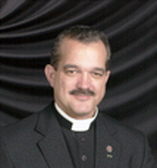 The Diocese of Southeast Florida
The Bible Challenge
Zechariah 7&8; Psalm 137; Mark 15
Dear Friends…
Could it be that the authors of The Bible Challenge intentionally chose these specific readings assigned to us for Day 363? Or, were the selections somehow dropped on us this 25th of December by a mysterious, pre-ordained Divine rationale? Why in God’s good name would we be reading passages filled with displacement, mourning, suffering and death on this Joy-filled, holy Feast of the Incarnation? Why?
Let’s explore today’s readings to assist us in our understanding. We read in the 7th Chapter of Zechariah where God’s people are suffering in Babylon. They are displaced and in deep despair because of their disobedience to the Lord. The Psalmist also laments because of the pain of God’s exiled. Yet, Zechariah in Chapter 8 swiftly brings words of promise to restore the beleaguered Jews. “The Lord giveth and the Lord taketh away…” signifies the relationship between God and God’s chosen. Divine providential care seems to be held in the balance of quid pro quo; sinning causes divine retribution while repenting brings salvation. Hold this thought.
Now let’s reflect on Jesus’ arrest, trial, conviction, beating, crucifixion, death, burial and all the horrible emotions which these events thrust upon those who loved him, especially his mom. How does Luke’s passion narrative make it possible for us to say, “Merry Christmas!”? It doesn’t! But yes.., it does! It’s all a part of the same picture.
Do you remember the scene in Mary Poppins where she, the children and Burt are about to jump into a sidewalk chalk painting of a country landscape? Once they jumped into that magical portrait a whole new world opened up for them. They engaged in many exciting adventures which were unimaginable standing on the outside.
The Incarnation is the Portrait. Our spiritual God, made flesh, proclaimed forever holy the flesh and blood of our mortal nature. With the conception and birth of God’s Word we are given the gift of our entryway: Jesus. We jump into the sketch of our Divine intimacy through the waters of Baptism. Once we’re “in” all the potential adventures of a Divine life become ours!
But, God’s holy life for us came at a price. It resulted in the disobedience and suffering of his people Israel as they lost their identity in a foreign land. It took Jesus to face the pain and agony of all the power that Sin could force upon Him. Defeating Satan’s darkness with the Authority of Love, Jesus conquered Death once and forever. Through Jesus’ suffering, death, burial and resurrection we are given an abundance of Grace in this life and life eternal when our mortal vessels rest.
Today, we can say “Merry Christmas!” with the certain joy that God is our great Artist. Without Mary’s “Yes!” there would be no birth of the Messiah. Without Jesus’ “Yes!” there would be no perfect Lamb to offer for our Sin. Without God’s call of the Israelites and their centuries old turbulent relationship of disobedience and repentance, there would be no Davidic line from which the Christ would be born. Without ADAM there would be no original Sin and no need at all for the portrait God has painted for us over these thousands of years of our Salvation History. But God’s artistic rendering is real. It is our story of disobedience and sin redeemed through God’s faithful, never failing love relationship with us.
Maybe, just maybe, that is why we are given scripture readings familiar to Good Friday on this most Joy-filled celebration of God’s Incarnation.
A Very Blessed and Merry Christmas to you and yours….
Fr. Bernie
St. Martin, Pompano Beach
 Recently, I learned a new term. FOMO. I heard it being said in conversation over dinner at the home of one of the families from the St. Simon’s congregation.
“Oh mom,” one child said. “You have FOMO.”
“FOMO?” Curiously, I asked their daughter. “What’s that?”
Fear Of Missing Out.
Heartily I laughed, knowing that I too suffer from family FOMO. When I see both my husband and daughter checked in on Skype, I wonder if they are talking to each other. I don’t want to miss out on the conversation. I want to be involved and engaged in all family matters, which is sometimes a great challenge when living or traveling in separate countries, and during holidays such as the Christmas season.
But Divine FOMO is a good spiritual aspect. We need more FOMO in our walk with Christ.
Why do we fast? Why do we pray? Why do we go to Church? Why do we have so many Christmas services, programs and Nativity plays? Because it makes a difference in our walk with Christ. In a spiritual sense, we don’t want to miss out! It’s good to have Divine FOMO!
Divine FOMO breeds humility; realizing our own weakness and frailty, helps us to see what controls us; we get irritable and ugly and easily frustrated when fast and miss a meal. It helps us to say, “I am sorry. I was wrong. Please forgive me” to God. Divine FOMO helps us to not be judgmental to the hungry man in the Old Testament story when he sold his birthright for a simple bowl of stew.
Divine FOMO is what we experience as we pray as a church community. Together, we see God’s hand at work. When undergoing a crisis, we realize that Christ-is. Community offers to others the gift of song, a prayer when someone is too tired or broken to sing for themselves. It gives some the opportunity to rest awhile, allowing others to carry the load. It allows one to weep as another rises from the couch to get a box of tissues.
Divine FOMO. The divine knowledge that God guides our path to His glory, giving us inexpressible joy. We don’t want to miss out! We live with a wonderful expectation because Jesus Christ is born. This is divine FOMO! Trust in God as Mary and Joseph trusted the prophetic message from the Angel, singing Glory to God in the Highest and Peace to His People on Earth! Search for Christ as the Magi searched for the Newborn King. Divine FOMO. Don't miss out on what God has prepared in advance for His Children who seek Him. Trust, search and rejoice in the Reason of the season!
|










 RSS Feed
RSS Feed